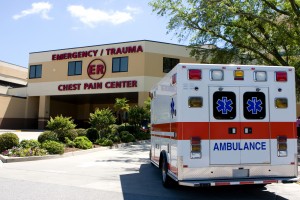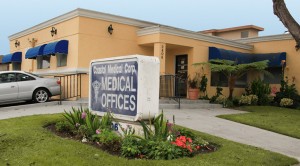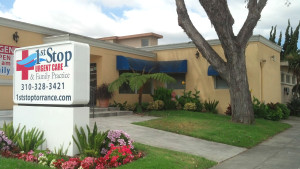Urgent Care Vs. the E.R.
 Many people prefer to visit their local Urgent Care Center over the hospital’s Emergency Rooms because they are a much faster alternative that is more affordable.
Many people prefer to visit their local Urgent Care Center over the hospital’s Emergency Rooms because they are a much faster alternative that is more affordable.
Urgent Care Typically Delivers Faster Service to Your Medical Needs
Patients often report numerous hours of waiting in the waiting area before even being seen by a physician at the Emergency Room. This makes sense because the ER sees patients with a wide range of medical emergencies, some that are life-threatening. Those patients needing more immediate attention receive medical care before others with lesser urgent needs.
 When a patient comes in with an illness or injury that is urgent, but can wait, that is what happens, you wait. Here is a typical list of ILLNESSES that we see at our 1st Stop Urgent Care. And, here is a typical list of INJURIES that we provide immediate care for at 1st Stop Urgent Care.
When a patient comes in with an illness or injury that is urgent, but can wait, that is what happens, you wait. Here is a typical list of ILLNESSES that we see at our 1st Stop Urgent Care. And, here is a typical list of INJURIES that we provide immediate care for at 1st Stop Urgent Care.
Our Urgent Care Typically Costs Less Than the ER
Because the overhead, equipment, nursing staff and physician staff costs are significantly more expensive at an ER, your costs are higher. Some patients have reported to us that their costs at our Urgent Care Center were about one-fourth the price of the Emergency Room.
When Should You Go To the ER?
The rule of thumb for visiting the ER instead of an Urgent Care center is when the injury or illness is life threatening. Here are some examples of when you should visit the ER instead of our Urgent Care Center.
- Heart attack symptoms that last 2 or more minutes. Symptoms can include
- Chest pressure, fullness, or squeezing.
- Tightness, aching, or burning under the breastbone.
- Light headed feeling along with chest pain.
- Stroke Symptoms that include
- Sudden weakness or numbness of the face, arm or let on one side of your body
- Sudden dimness or vision loss mostly in one eye
- Trouble talking or speech not being understood
- Unexplained dizziness, sudden falls, or unsteadiness especially when accompanied with other stroke symptoms
- Shortness of breath that is severe
- Unconscious
- Bleeding that does not stop after 10 minutes of direct pressure
- Sudden, severe pain
- Poisoning. Please note you should call your local poison control center first and ask for immediate home treatment advice-certain poisons should be vomited as soon as possible while others should be diluted with water as soon as possible. Such preliminary home treatment could save your life.
- California Poison Control Center Phone: 1-800-222-1222
- Website: http://www.calpoison.org/
- A severe or worsening reaction to an insect bite or sting, or to a medication, especially if breathing is difficult
- A major injury, such as a head trauma
- Unexplained stupor, drowsiness or disorientation
- Coughing up or vomiting blood
- Severe or persistent vomiting
- Suicidal or homicidal feelings

